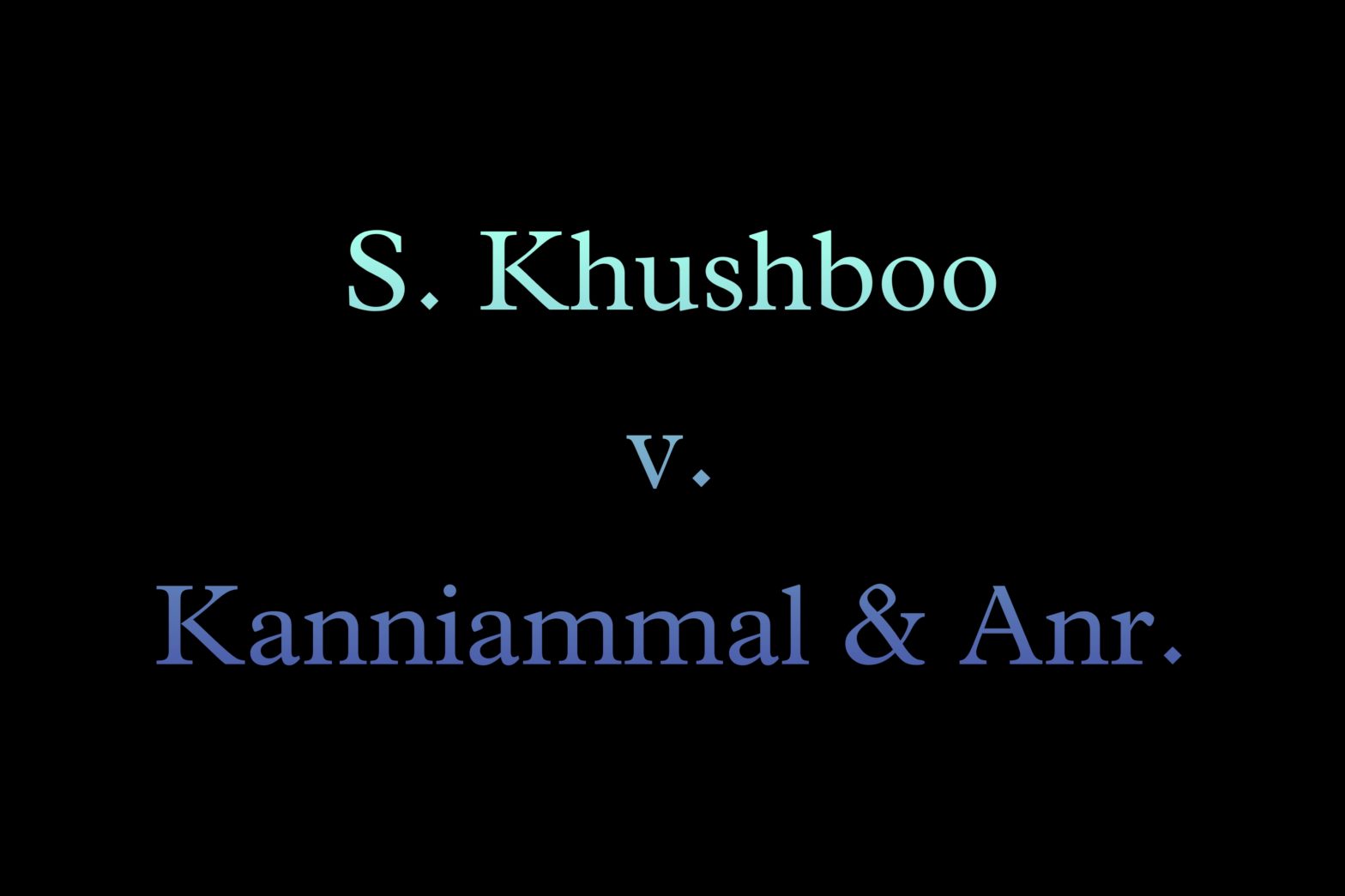Case Name: S. Khushboo vs Kanniammal & Anr
Citation: (2010) 5 SCC 600
Date of Judgement: 28-04-2010
Parties Involved: S. Khushboo and Kanniammal & Anr
Facts
The appellant gave an interview on the India Today channel in which she said that pre-marital sex should be recognized and embraced by society. Dhina Thanthi, a Tamil daily, announced that her statements made a sensation in Tamil Nadu, and later they had an interview with her in which the appellant allegedly defended her views. The appellant submitted a legal notice dated 2.10.2005 to the editor of ‘Dhina Thanthi’ shortly after the release of the aforementioned news story, categorically denying that she had published such comments.
In essence, the appellant ordered the publisher to delete the news item published on 24.9.2005 and to publish its objections prominently within a period of three days of receipt of the notice, in the absence of which the appellant will have to take appropriate legal action against the newspaper. Certain persons lodged criminal charges against her. Under Sec 482 of CrPC, she appealed to the High Court to quash those criminal proceedings. The court said that only the trial court had to deal with whether her comments amounted to defamation and her complaint was dismissed. Through Special Leave Requests, she approached the Supreme Court.
Issue
Whether the Appellant’s remarks could reasonably amount to offence of defamation as defined under Section 499 of Indian Penal Code, 1860?
Judgment

The Supreme Court held that there is no prima facie case of defamation in the present case. The court also found that the institution of the numerous criminal complaints against the Appellant was done in a mala fide manner. In order to prevent the abuse of the criminal law machinery, it would be appropriate to grant the relief sought by the Appellant i.e., to quash all the complaints. In such cases, the proper course for Magistrates is to use their statutory powers to direct an investigation into the allegation. Therefore, it is not the task of the criminal law to punish individuals merely for expressing unpopular views
Rationale
The Court stated that to establish the offense under Section 509 IPC it is necessary to show that the modesty of a particular woman or a readily identifiable group of women has been insulted by a spoken word, gesture, or physical act. This offense cannot be made out when the complainants’ grievance is with the publication of what the Appellant had in a written form. Likewise, Section 153(A) has no application to the present case since the Appellant was not speaking on behalf of one group and the content of her statement was not directed against any particular group either.
Comment
This case is one of the important cases because it deals with the question of protection of the fundamental right of freedom of speech and expression and it also clarified the criteria to check the obscenity of any statement. The Supreme Court stated that obscenity should be gauged concerning contemporary community standards that reflected the sensibilities as well as the tolerance levels of an average reasonable person.
